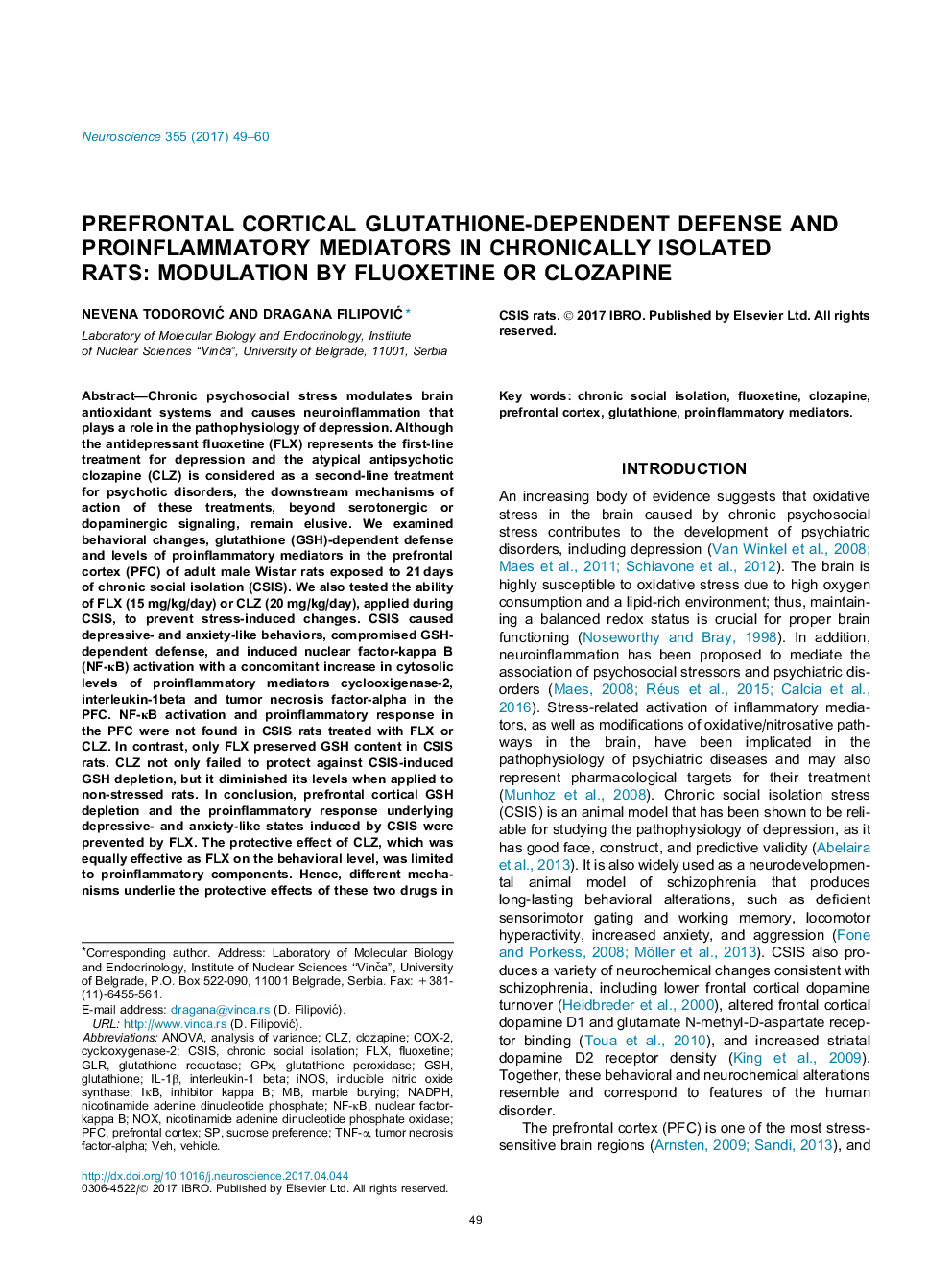| کد مقاله | کد نشریه | سال انتشار | مقاله انگلیسی | نسخه تمام متن |
|---|---|---|---|---|
| 5737607 | 1614721 | 2017 | 12 صفحه PDF | دانلود رایگان |
- Chronic social isolation (CSIS) caused depressive- and anxiety-like behaviors in adult, male Wistar rats.
- CSIS decreased GSH and increased levels of proinflammatory mediators in the prefrontal cortex (PFC).
- Treatment with fluoxetine (FLX) or clozapine (CLZ) prevented behavioral changes observed in CSIS rats.
- FLX preserved GSH content and prevented proinflammatory response in the PFC of CSIS rats.
- CLZ treatment prevented proinflammatory response, but not GSH depletion, in the PFC of CSIS rats.
Chronic psychosocial stress modulates brain antioxidant systems and causes neuroinflammation that plays a role in the pathophysiology of depression. Although the antidepressant fluoxetine (FLX) represents the first-line treatment for depression and the atypical antipsychotic clozapine (CLZ) is considered as a second-line treatment for psychotic disorders, the downstream mechanisms of action of these treatments, beyond serotonergic or dopaminergic signaling, remain elusive. We examined behavioral changes, glutathione (GSH)-dependent defense and levels of proinflammatory mediators in the prefrontal cortex (PFC) of adult male Wistar rats exposed to 21 days of chronic social isolation (CSIS). We also tested the ability of FLX (15 mg/kg/day) or CLZ (20 mg/kg/day), applied during CSIS, to prevent stress-induced changes. CSIS caused depressive- and anxiety-like behaviors, compromised GSH-dependent defense, and induced nuclear factor-kappa B (NF-κB) activation with a concomitant increase in cytosolic levels of proinflammatory mediators cyclooxigenase-2, interleukin-1beta and tumor necrosis factor-alpha in the PFC. NF-κB activation and proinflammatory response in the PFC were not found in CSIS rats treated with FLX or CLZ. In contrast, only FLX preserved GSH content in CSIS rats. CLZ not only failed to protect against CSIS-induced GSH depletion, but it diminished its levels when applied to non-stressed rats. In conclusion, prefrontal cortical GSH depletion and the proinflammatory response underlying depressive- and anxiety-like states induced by CSIS were prevented by FLX. The protective effect of CLZ, which was equally effective as FLX on the behavioral level, was limited to proinflammatory components. Hence, different mechanisms underlie the protective effects of these two drugs in CSIS rats.
94
Journal: Neuroscience - Volume 355, 4 July 2017, Pages 49-60
